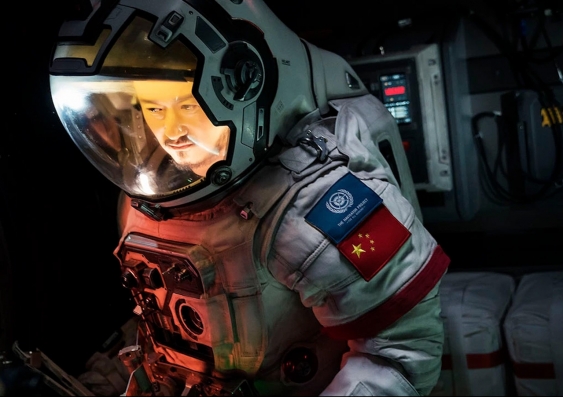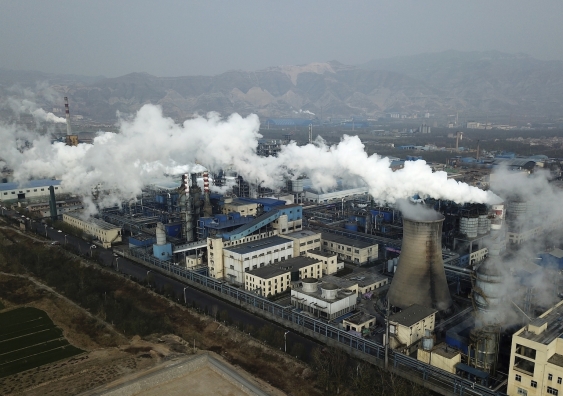The Albanese government has faced an increasingly uncertain world since its re-election in May.
US President Donald Trump has cast a over the AustraliaŌĆōUS alliance, raising fresh questions about CanberraŌĆÖs long-term regional strategy.
Against this backdrop, Prime Minister Anthony AlbaneseŌĆÖs approach to foreign policy is reflecting a careful recalibration ŌĆō one that seeks to balance security partnerships with the pursuit of economic opportunities, especially with AustraliaŌĆÖs , China.
Albanese has wrapped up a to China which was characterised by a highly pragmatic approach to dealing with the problems and irritants in the bilateral relationship.
Economic engagement
AlbaneseŌĆÖs visit to Beijing, Shanghai and Chengdu ŌĆō cities emblematic of AustraliaŌĆÖs political, economic and cultural connections with China ŌĆō was more than symbolic.
It was a high-profile diplomatic venture, with Albanese the Chinese and .
But it was more than a leadersŌĆÖ summit. A large team of key business leaders in banking, manufacturing, mining and education were on the trip to meet their Chinese counterparts and seek more cooperation.
Economic engagement dominated the visit. As Albanese his trip, ŌĆ£my priority is jobsŌĆØ.
Broader partnerships spanning , including healthcare, education and green energy, were canvassed. The two nations also explored closer cooperation on energy transition and climate change.
Chinese Ambassador to Australia Xiao Qian has even floated on artificial intelligence.
However, the suggestion has been met with caution in Canberra due to ongoing concerns around national security and data governance.
Cooperate where we can
Beyond trade and investment, the visit also marked an effort to rebuild people-to-people exchanges.
Since last year, Australian citizens have been able to for up to 30 days without a visa. In turn, Australia will welcome more Chinese visitors under a new promoting Australia as a premier tourist destination for Chinese travellers.
AlbaneseŌĆÖs meetings with Xi Jinping and Li Qiang also yielded concrete results.
The official emphasised economic cooperation, particularly in climate-related areas such as steel decarbonisation, dryland farming and the green economy.
These outcomes align with the Albanese governmentŌĆÖs guiding principle: cooperate where we can.
The deeper economic cooperation has been , where there is an expectation collaboration will continue to accelerate on the back of improved relations.
As of the AustraliaŌĆōChina Relations Institute , a stronger economic partnership will help foster more resilient ties across the board.
More independent foreign policy
Other analysts also see increased mutual benefits in the bilateral relationship.
China-watcher suggests the visit may signal a maturing, Australian foreign policy.
The primary role of Australian statecraft is to do everything we possibly can to avoid a conflict. To avoid ever getting close to a decision about following the Americans into a war of that kind.
This was best illustrated by AlbaneseŌĆÖs refusal to provide Washington with a wide-ranging and largely open-ended commitment to support the US in any conflict with China .
Indeed, as Curran observes, Albanese has tried to steer the relationship away from disagreement and towards pragmatic engagement.
Following his meeting with Xi, Albanese was repeatedly asked by Australian journalists if he raised sensitive issues such as Taiwan, ChinaŌĆÖs and the .
While he confirmed these topics were addressed, he emphasised for peaceful engagement:
[ŌĆ”] we want peace and security in the region. That is in the interest of both Australia and in the interest of China.
Unsurprisingly, the joint statement made no reference to these issues, reflecting a mutual decision to sidestep confrontation in favour of stabilising the relationship.
Quietly managing differences
This diplomatic posture toward China would appear to be a defining feature of the Albanese governmentŌĆÖs second term: strengthening cooperation while quietly managing differences.
Rather than highlighting points of contention, the government is opting to avoid open disagreement where possible.
Overt disputes risk destabilising bilateral ties. If issues are raised publicly, it is unlikely to shift entrenched positions on either side. This explains why the ownership of the , for example, was not mentioned during AlbaneseŌĆÖs meeting with Xi.
Critics, however, argue this risks projecting weakness towards China.
, executive director of the Australian Strategic Policy Institute, warns the government is in the face of ongoing Chinese coercion:
Australia is only complying with ChinaŌĆÖs desires when the government says nothing and leaves the public to trust that the threats posed by China are all being dealt with in the classified realm. This is not viable policy. AustraliaŌĆÖs sovereignty must not be contingent on BeijingŌĆÖs preferences.
Even within China, analysts are cautious about AlbaneseŌĆÖs approach. As one Chinese scholar told us, ŌĆ£a stable relationship does not necessarily mean a friendly oneŌĆØ.
In fact, while the Chinese media has stressed Australia and ChinaŌĆÖs shared commitment to regional stability, this was barely mentioned in the official .
Mutual interests
Still, there is recognition on both sides that pragmatism rather than ideological grandstanding is the more sustainable path forward.
In sum, AlbaneseŌĆÖs visit does not mark a dramatic reset or bold new direction in AustraliaŌĆōChina relations. Rather, it signals a shift toward greater realism.
In an increasingly complex and multipolar world, diplomacy grounded in mutual interests, rather than ideology, is not just practical, but may be a growing trend across the globe.![]()
, Postdoctoral Fellow in China Studies, and , Lecturer in International Political Studies at the School of Humanities and Social Sciences, ▓▌▌«╩ėŲĄ Canberra,
This article is republished from under a Creative Commons license. Read the .







